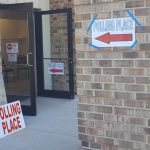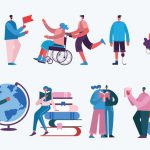Delaware is piloting an internet-based voting system for people with physical disabilities and others voting absentee in the June primaries that CDS Director Beth Mineo says can provide a convenient, private way to cast a ballot. Mineo cautions that the system, designed by Democracy Live and using Amazon Web Services secure cloud technology, must be trusted or else the votes of people with disabilities may be called into question. While Delaware Elections Commissioner Anthony Albence describes the system as “ideal,” cybersecurity experts contend any online-based system is vulnerable to hacking.
The United Nations Human Rights Office released a document with guidelines on ways governments should mitigate the effects of Covid-19 on people with disabilities, including removing individuals from institutions and granting high priority for testing. It warned that people with disabilities face disproportionate impacts from both the disease and response measures such as lockdowns.
A study published in the academic journal Autism found that the severity of behavioral and emotional problems such as anxiety and depression individuals have at ages 10–12 was a strong predictor of whether those problems would persist into young adulthood. The lead researcher said these results could help better target mental health care resources.
UD School of Education professor Stephanie Del Tufo discusses ways colleges could ensure they are reaching students with disabilities during the coronavirus lockdown. Del Tufo emphasizes that accessibility must be thought of as both physical access to technology and the presentation of classwork in ways that meet the students’ learning needs.
While people with disabilities are generally at higher risk from Covid-19, there are differences within the community that can have substantial impacts on a person’s safety. These include whether the person lives at home; whether the person is employed or has a job that can be done remotely; whether the person has a physical disability or an “invisible” disability; and whether the person belongs to a racial or ethnic minority group.





